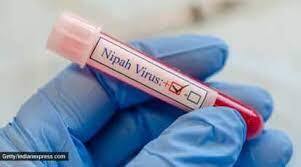In a concerning development, the total number of Nipah virus (NiV) cases in Kerala has risen to six, including a nine-year-old child. This resurgence of the virus, which was previously identified in the state in 2018, emphasizes the highly contagious nature of NiV and the importance of taking precautions, particularly for young children.
Nipah virus is a zoonotic virus, meaning it can be transmitted between animals and humans. Fruit bats, specifically certain species of fruit bats known as flying foxes, serve as natural hosts for the virus. While NiV primarily infects bats, humans can contract the virus from these animals, making it crucial for children to follow essential precautions.

Precautions for Kids:
Dr. Kush Ohri, Senior Consultant in Internal Medicine at Metro Hospitals & Heart Institute, Noida, offers valuable advice for parents and caregivers to protect children from NiV:
- Avoid Contact with Animals: Children are advised to stay away from animals such as pigs and bats, which can transmit the infection. They should not approach these animals closely or touch them.
- Hand Hygiene: If children are in proximity to animals, ensure they wash their hands thoroughly with soap and water. This practice helps eliminate any viruses that may be present on their hands.
- Safe Food Practices: It’s essential to ensure that the food children consume, especially dishes containing meat, is prepared correctly. Proper cooking eliminates any viruses that may be present in the food.
- Seek Expert Advice: In the event of an outbreak in the vicinity, it is advisable to seek guidance from healthcare professionals or doctors.
- Reporting Illness: Children should always inform an adult if they experience symptoms such as sickness, fever, or difficulty breathing. Early reporting can facilitate timely medical intervention.
As NiV cases continue to emerge, parents must remain vigilant and monitor their children for any potential symptoms of the disease. Common symptoms of NiV infection include fever, headaches, myalgia (muscle pain), vomiting, sore throat, dizziness, drowsiness, altered consciousness, and acute encephalitis. In severe cases, encephalitis and seizures can occur, leading to a coma within 24 to 48 hours.

It’s worth noting that the case fatality rate for NiV infection ranges from 40% to 75%, as reported by the World Health Organization (WHO). NiV is a zoonotic illness, meaning it can be transmitted from animals to humans. In some cases, it can also cause asymptomatic infections.
The current variant of NiV in India is believed to be the Bangladesh variant, which is associated with a high mortality rate but lower infectiousness. Fruit bats, also known as flying foxes, belonging to the Pteropodidae family, are the natural carriers of the Nipah virus.
The first case of NiV in India was identified in 2018, resulting in a significant number of fatalities. Subsequent cases were reported in Kerala in 2019 and 2021. In 2021, a 12-year-old boy infected with NiV exhibited symptoms such as brain swelling and heart inflammation, highlighting the severity of the virus.